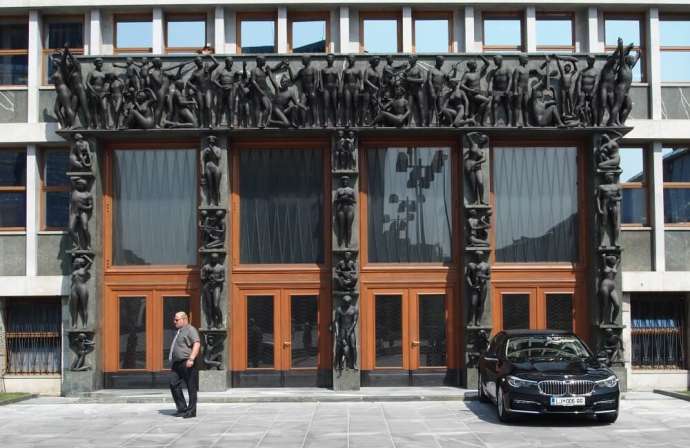STA, 13 May 2022 - Slovenia's new parliament opened on Friday with the confirmation of the terms of all ninety MPs and the election of the first woman to the speaker post, and a move by the opposition that indicates that the new coalition faces a formidable opponent versed in parliamentary procedure.
Urška Klakočar Zupančič, a former judge, was elected the first female speaker with 55 votes in favour and 25 against in a secret ballot that illustrates the weight of the future coalition, a grouping of three parties with 53 MPs among them that will be formalised within days.
Klakočar Zupančič, 44, called for dignified communication in parliament and said MPs should criticise deeds and actions, not persons, as she stressed that parliament was embarking on a challenging journey after two very difficult years during which the rule of law was undermined.
"The rule of law is the highest postulate of a democratic country that must always remain intact," she added.
She believes that all MPs have a sincere desire to do something good for their country and that each of them would like to help improve the quality of life in Slovenia. Despite their political and ideological differences, she would work to build consensus wherever possible.
A similar message was delivered by President Borut Pahor when he said Slovenia could survive the testing times ahead provided that there is "common ground found on the most important matters of the state".
The new opposition meanwhile tabled more than two dozen bills minutes after parliament opened, a move that will delay the passage of legislation crafted by the new coalition.
Most notably, the Democrats (SDS) and New Slovenia (NSi) tabled a package of media bills, including amendments to the law on public broadcaster RTV Slovenija, legislation singled out as the top priority for the new government.
The National Assembly's rules of procedure stipulate that if two laws dealing with the same subject matter are tabled, the one that is chronologically first to be submitted gets priority. Until it is either passed or voted down, a second law cannot even be considered.
While the opposition described the move as a show of its constructive stance - SDS deputy group leader Danijel Krivec said this was "nothing special", Robert Golob, the presumptive prime minister, said it constituted an "abuse of parliamentary procedure" and was "childish".
"Every normal person asks himself why someone ... who had a majority in the National Assembly until three weeks ago was waiting to join the ranks of the opposition and start tabling legislation," he said.
The move may have been primarily designed to delay changes to the RTV Slovenija law, but parliamentary records show the incoming coalition beat the opposition to that by tabling its bill first - and designating it for fast-tracking.
Golob said the main change involved the National Assembly appointing only two members of the Programming Council rather than 17.







